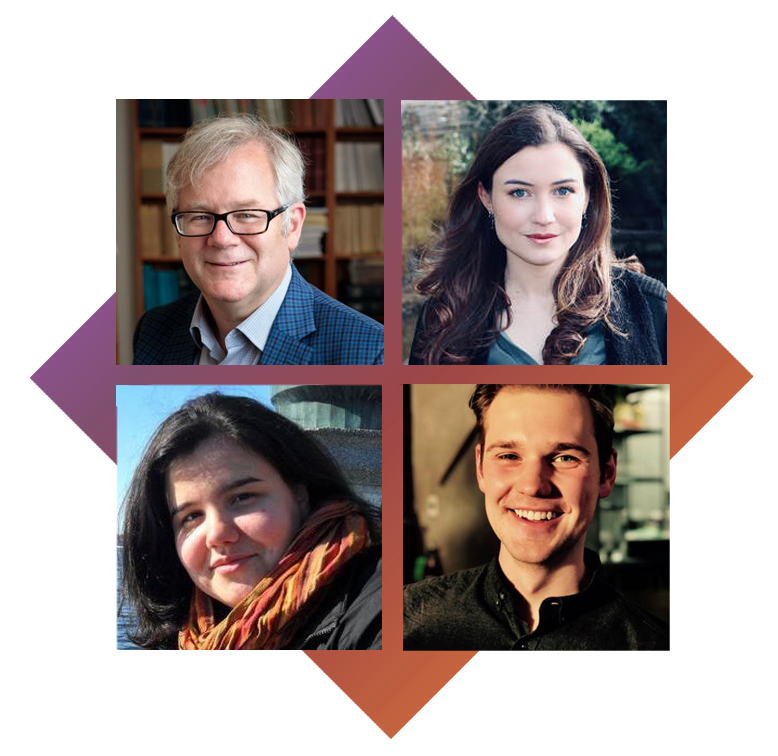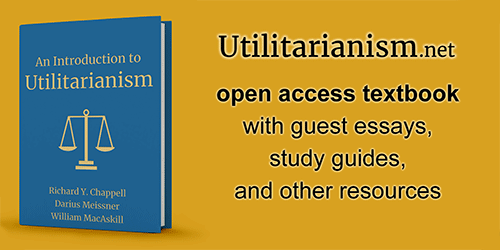British Journal for the History of Philosophy Awards
The British Journal for the History of Philosophy has announced the winners of three of its prizes.
The journal awarded the 2022 Rogers Prize—its annual prize for the best article it publishes—to Michael Kremer (University of Chicago) for his paper “Margaret MacDonald and Gilbert Ryle: a philosophical friendship”. Here’s the abstract of his article:
This article considers the personal and philosophical relationship between two philosophers, Margaret MacDonald and Gilbert Ryle. I show that a letter from MacDonald to Ryle found at Linacre College, Oxford, was part of an extensive correspondence, and that the two were intimate friends and philosophical interlocutors, and I explore the relationship between their respective philosophies. MacDonald, who studied with Wittgenstein before coming to Oxford in 1937, deployed and developed Wittgensteinian themes in her own subsequent work. I show that this work was an important source of ideas in Ryle’s philosophy. I examine two episodes: (1) a 1937 symposium in which MacDonald gave the lead paper, and Ryle was a respondent—I argue that Ryle derived his famous distinction between knowledge-how and knowledge-that from her paper; and (2) Ryle’s rejection in Dilemmas (1953/4) of the central importance of the idea of a ‘category mistake’—I argue that this may have been in response to MacDonald’s critical review of The Concept of Mind. Along the way I consider the development of MacDonald’s metaphilosophical views, and I shed new light on MacDonald’s remarkable biography.
This article and the topic of underappreciated philosophical friendships were discussed previously at Daily Nous here.

clockwise from top left: Michael Kremer, Lea Cantor, Michael Morgan, and Claudia Dumitru
The winner of the Rogers Prize receives £1,000. The prize was established in 2012 in honor of John Rogers, the founding editor of the journal.
The journal awarded its Beaney Prize—its annual prize for the best contribution to widening the canon it publishes—to Lea Cantor (University of Oxford) for her paper “Thales – the ‘first philosopher’? A troubled chapter in the historiography of philosophy”. Here’s the abstract of her article:
It is widely believed that the ancient Greeks thought that Thales was the first philosopher, and that they therefore maintained that philosophy had a Greek origin. This paper challenges these assumptions, arguing that most ancient Greek thinkers who expressed views about the history and development of philosophy rejected both positions. I argue that not even Aristotle presented Thales as the first philosopher, and that doing so would have undermined his philosophical commitments and interests. Beyond Aristotle, the view that Thales was the first philosopher is attested almost nowhere in antiquity. In the classical, Hellenistic, and post-Hellenistic periods, we witness a marked tendency to locate the beginning of philosophy in a time going back further than Thales. Remarkably, ancient Greek thinkers most often traced the origins of philosophy to earlier non-Greek peoples. Contrary to the received view, then, I argue that (1) vanishingly few Greek writers pronounced Thales the first philosopher; and (2) most Greek thinkers did not even advocate a Greek origin of philosophy. Finally, I show that the view that philosophy originated with Thales (along with its misleading attribution to the Greeks in general) has roots in problematic, and in some cases manifestly racist, eighteenth-century historiography of philosophy.
The winner of the Beaney Prize receives £1,000. The prize was established in 2021 in honour of Mike Beaney, Editor of the journal from 2011 to 2021.
Lastly, the journal awarded its Best Graduate Essay Prize for 2022 to Claudia Dumitru (
The Graduate Essay Prize is £1000, and is awarded annually to the writer of an essay that makes a significant contribution to the history of philosophy. The competition is open to all graduate students, anywhere in the world, studying any subject.


